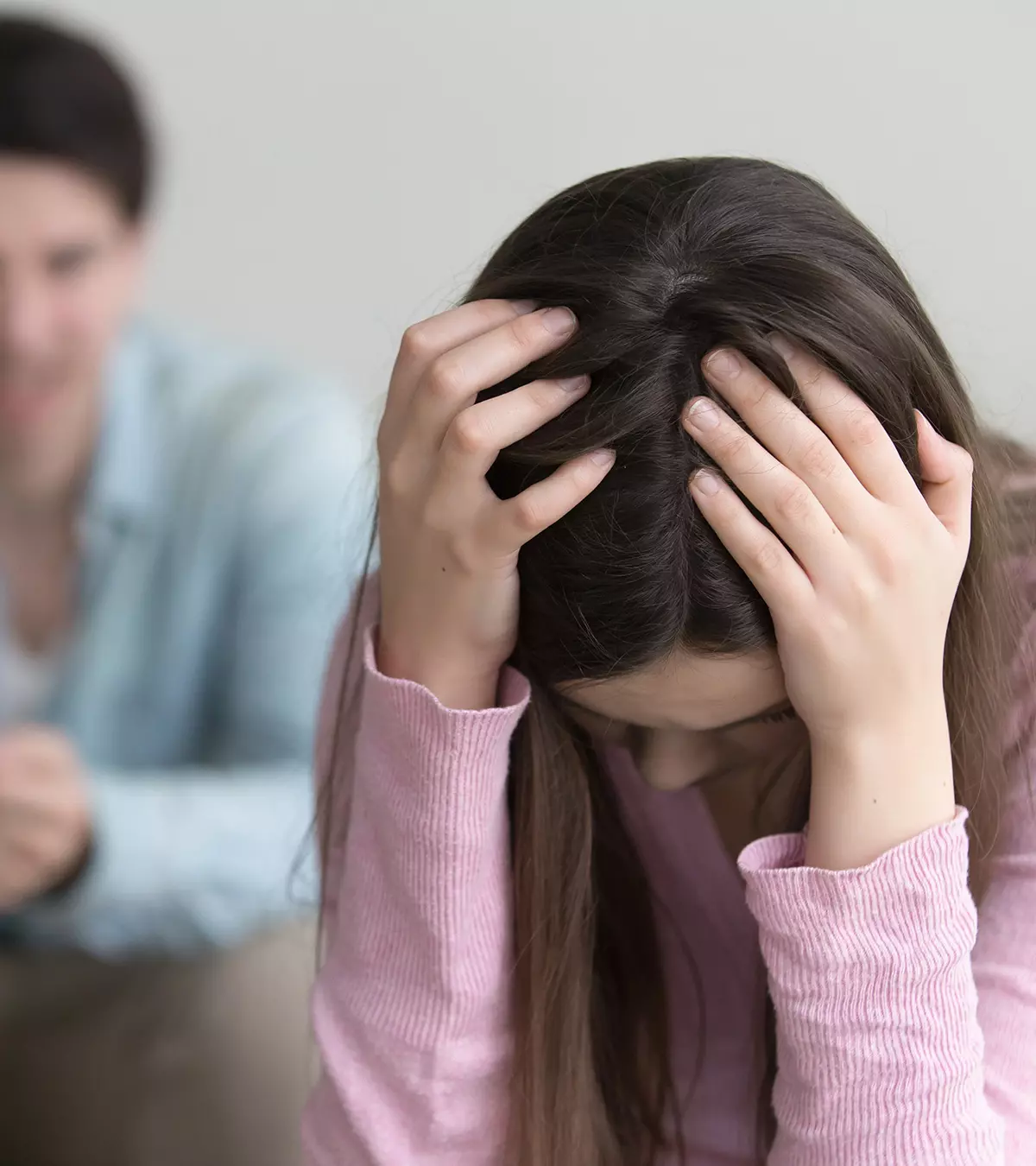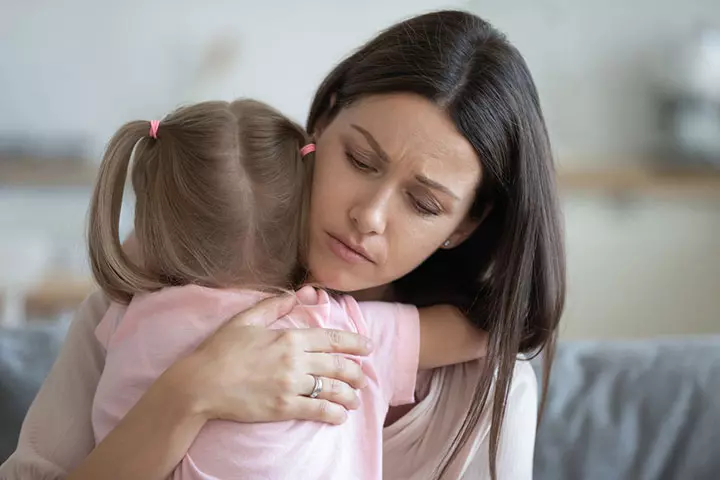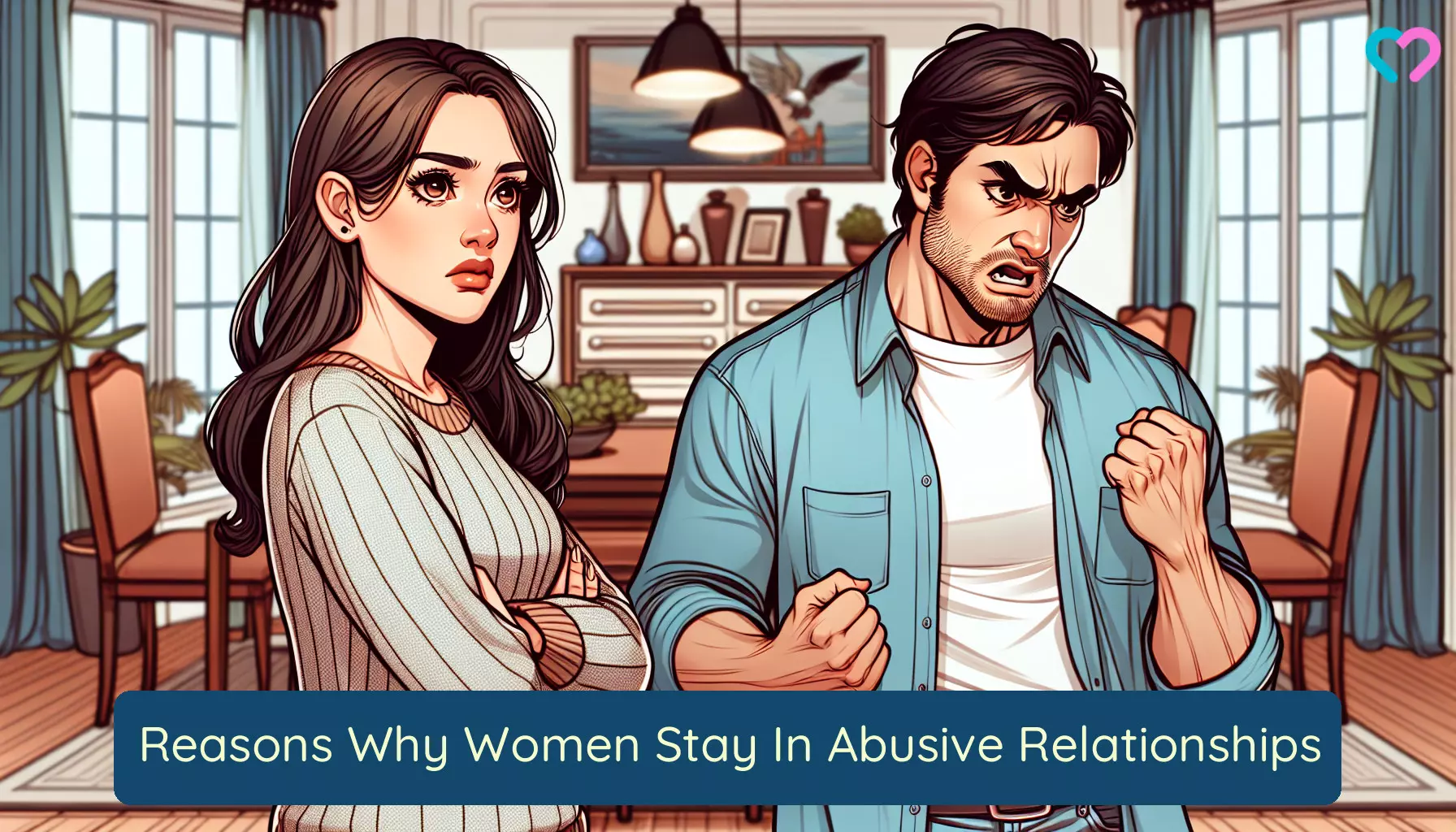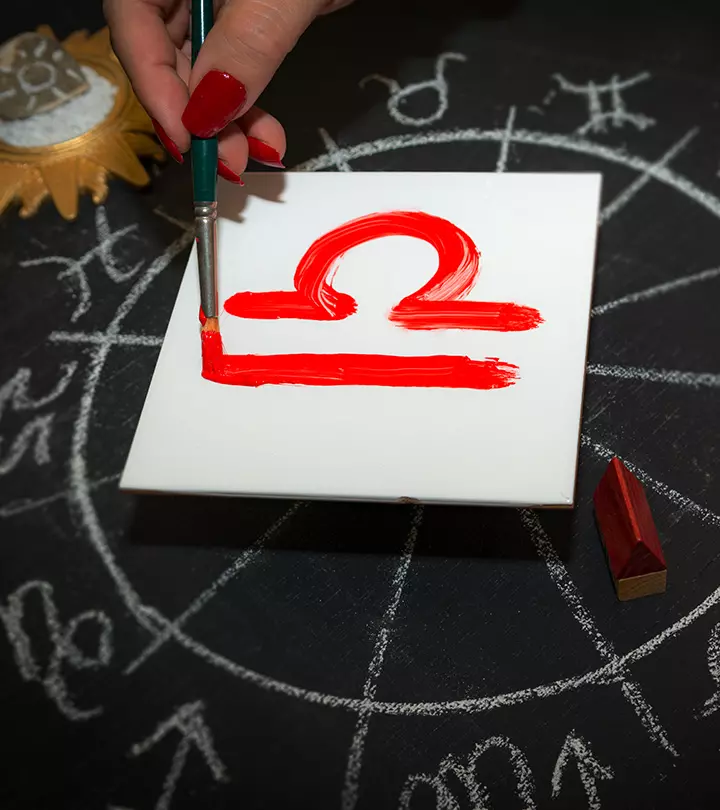
Image: Shutterstock
With the growing numbers of women reporting being harassed in a relationship, most of us must wonder, why do women stay in abusive relationships? As per 2011 reports from the Centers for Disease Control and Prevention’s National Intimate Partner and Sexual Violence Survey (NISVS), at least one in three women is subjected to physical harassment by their partners at some point in their lives (1). However, abuse may not be limited to just physical, it can also be mental and emotional. Physical abuse may include hitting, kicking, snapping, or in worst cases, causing trauma to the partner. On the other hand, emotional abuse may include constant insults, threatening, and isolating the partner. Any woman who is in an abusive relationship is advised to walk out on a man who disrespects and causes any harm to them. It may not be easy as most relationships could be more complicated than they seem to be. Unfortunately, some women feel trapped and choose to continue in abusive relationships for many reasons. This post allows you to understand the probable reasons why women choose to continue in such relationships. Read on.
Key Pointers
- Abusive relationships can negatively affect your mental and physical well-being.
- Fear of the abuser and self-doubt are some reasons women stay in an abusive relationship.
- However, prompt support and adequate guidance can help them end their plight.
12 Reasons Why Women Stay In Abusive Relationships
The reason why some women continue to put on with an abusive spouse varies from person to person. Let’s have a look at some of the most common reasons.
1. They hope the abuser will change one day
Some abusers use a caring and loving approach after every abusive episode to appease the victim.
It is like dangling a carrot before women that gives them false hope that the abuser will love them if they change their behavior. Also, if these women have invested a lot of time and effort in the relationship, they live in the hope that eventually, all the pain will be worth the probable chance at happiness.
2. They are afraid of their abuser

Image: IStock
Some women find themselves in toxic relationships where the abuser uses a fear-mongering attitude to keep them under control. The abuser threatens to harm the victim, their children, or themselves. In cases where the victim is financially dependent on the abuser, they threaten to annul the financial support. They ensure that the consequence of leaving becomes more scary and daunting than the experience of abuse. It leaves the women with no option but to put up with abuse.
3. They blame themselves for everything
After facing abuse, victims often start doubting themselves. It happens when their spouse blames them for their bad behavior. They start believing that they must have done something wrong that compelled the abuser to subject them to such intimidatory actions. They may recognize the maltreatment of the abuser, but their guilt-ridden mind convinces them to analyze the misbehavior from the abuser’s perspective. Blogger Irene Lynette, too, believed that she deserved the abuse meted out by her husband. She says, “I was conditioned to think that I deserved my lot. I made my bed, and now I had to lay in it. I chose to marry unequally yoked. He skillfully conditioned me to believe every horrible thing he said about me. I thought I was stupid and that I could not make it on my own. He told me I did not know how to communicate and that people only wanted me for what I could give them. He said that he was the only one who really loved me and that I was disgusting (i).”
4. They want to protect their children

Image: IStock
Some women endure years of physical and mental abuse for the sake of their children. They are ready to face the hardships without protesting to protect their little ones, as they do not want their children to grow up in broken families. Therefore, they go through harsh scenarios to show they live in a normal environment.
5. They may not have the resources to move out
Divorce is expensive and exhausting. Some women quit working after marriage or after having children. Such women may not have the resources to bear legal expenses, making them feel powerless. Also, they may have to start their life afresh post-separation that may not be a feasible option. Since they cannot support themselves, they might choose to continue staying in an abusive relationship.
6. They may be wary of their partner’s social standing

Image: IStock
In cases where women are married to successful and famous men who hold respectable positions in society, the victims bear abuse in silence, fearing an impact on the family’s reputation. Also, if the spouse has a preeminence in the society, women fear no one would believe their story; on the contrary, they may blame them for ruining their husband or family’s image.
 Do remember
Do remember7. They fear isolation
Abusers who are shrewd and conniving might isolate the woman from friends and family.
Women may develop fears of loneliness and separation from people who matter to them, so they silently bear the misbehavior and misconduct of their partner.
A study used developed data from the WHO Global Database on Prevalence of Violence Against Women to derive global, regional, and country estimates. The graph below shows that physical and/or sexual violence by an intimate partner showed highest prevalence in women in the age group of 20 to 44. About 24% of girls aged 15 to 19, 26% to 28% of women aged 20 to 44 years, and 23% of women aged 60 and above have experienced intimate partner violence in their lifetime.

The global prevalence of intimate partner violence by age group
Source: Global, regional, and national prevalence estimates of physical or sexual, or both, intimate partner violence against women in 2018; The Lancet8. They question their self-worth
Exposure to emotional abuse can zap anyone’s self-worth, resulting in low self-esteem. When an abusive partner constantly tells them they are worthless or mocks their appearance, it leaves a deep impact on their subconscious mind and can make them believe they do not deserve anything good in life. This can make them question their self-worth and force them to continue to be in an abusive relationship.
9. They feel pressured to live up to society’s image
According to certain cultural norms, women are made to believe that once they are married, they need to carry on the new family’s legacy, come what may. The need to look like the perfect couple can pressure women to live with an abusive partner. They feel that separation will break the societal image they have built. Also, they are afraid of looking like someone who is unable to maintain a relationship while others enjoy marital bliss for years.
10. They feel embarrassed to admit the truth

Image: IStock
Some women keep silent through abuse because they feel embarrassed to share the truth with anyone. They fear being judged, shamed, and even blamed for their partner’s actions. They may fear a lack of support from the family and society upon sharing their feelings. They may also despise the pity that people show when learning the truth. They feel that remaining silent is better than having people giving you unwarranted advice, and so they continue to remain in an abusive relationship.
11. They feel they can save their partner
Some women feel they know and understand the reason behind their partner’s abusive behavior. They carry on, thinking and hoping they will rescue their partner from trouble.
She believes that loyalty and love can melt the abuser’s heart and reform them as a person. It can also manifest as an unhealthy attachment or emotional dependence on the abuser. This is a trauma bond, and it is one of the most common psychological responses to abuse.
 Point to consider
Point to consider12. They believe it is common and acceptable
If a woman has grown up seeing men abuse women without consequence, she may believe it is as normal behavior. She might even be in denial and may not accept that the physical or emotional trauma she experiences is abuse. She may even assume abuse as a part of a healthy and normal relationship.
Frequently Asked Questions
1. How to come out of an abusive relationship?
The first step to getting out of an abusive relationship is recognizing the abuse. Set boundaries within your relationship and talk to your family or close friends about it. If things are getting serious, it is better to end the relationship instead of waiting for the abuser to accept their mistakes and move on together.
2. Is emotional abuse more common in relationships?
Emotional abuse is more common in relationships as people tend to overlook it. It is the most pervasive form of relationship maltreatment because it can be subtle, insidious, and manipulative.
3. What are some long-term effects of staying in an abusive relationship?
Staying in an abusive relationship can have long-term effects, including physical harm, psychological trauma, anxiety, depression, and post-traumatic stress disorder (PTSD). They also face challenges in trusting others, social isolation, and an increased likelihood of encountering subsequent abusive relationships. Seeking assistance and accessing support services are vital for healing and moving forward (3).
4. Do emotionally abusive people do it on purpose?
The intention behind emotionally abusive behavior can differ among individuals. Some people may intentionally employ manipulative tactics, while others may display such behavior without fully realizing the harm it causes to others. However, any emotional abuse in relationships shouldn’t be tolerated, irrespective of the intention.
5. What motivates emotional abuse?
Emotional abuse can be motivated by a need for control, power, insecurity, unresolved personal problems, learned behaviors from past experiences, or inadequate communication and conflict resolution abilities.
6. Can therapy be helpful for someone who is in an abusive relationship?
Yes, therapy can be beneficial for individuals in abusive relationships. A skilled therapist can offer support, aid in exploring choices, develop coping mechanisms, rebuild self-confidence, and assist in creating safety plans or transitioning away from the abusive relationship (3).
7. Can the brain heal from emotional abuse?
The brain possesses the ability to recover from emotional abuse. Time, support, therapy, and self-care could help you achieve emotional healing, cultivate healthier coping strategies, and rebuild your overall well-being and resilience.
8. Is it ever the woman’s fault for staying in an abusive relationship?
Blaming the woman or victim for staying in an abusive relationship is neither helpful nor fair. Factors such as fear, manipulation, trauma, and lack of resources can create significant barriers to leaving.
9. Is it possible for an abuser to change and become a better partner?
Yes, an abuser can transform and improve as a partner. However, this transformation necessitates a sincere dedication to change, introspection, therapy, and a willingness to confront the root causes of abusive behavior. It is a process that demands time, commitment, and professional assistance.
Separation may seem like the most obvious choice in an abusive relationship, but it isn’t always so easy. Women often have limited resources to live independently, and with children and families involved, they are often forced to continue living in abusive relationships. Further, the expectation that the abuser will change, pressure to live up to society’s image, and embarrassment to admit the truth are other reasons that may discourage a woman from calling quits. However, offering such women the right guidance and support can help end their ordeal.
Infographic: Dealing With An Abusive Relationship
You first need to stop blaming yourself and avoid being misled by insincere apologies. It is crucial to stay strong for yourself and the well-being of your children. Believe that you deserve a life free of fear and look around for help. Go through the infographic below to identify safe options for seeking support. Illustration: Momjunction Design Team
Illustration: Reasons Why Do Women Stay In Abusive Relationships

Image: Dall·E/MomJunction Design Team
Most women stay in abusive relationships because they are hopelessly optimistic only to suffer. Watch this video to explore more such eye-opening reasons.
Personal Experience: Source
MomJunction articles include first-hand experiences to provide you with better insights through real-life narratives. Here are the sources of personal accounts referenced in this article.
i. Why I stayed in an abusive relationship;https://medium.com/@irenelynette/elephant-thinking-christian-leaders-a-few-reasons-why-i-stayed-in-an-abusive-relationship-736aa161389b
References
1. Intimate Partner Violence and Abuse Status of Women in the States
2. FAQ: The signs of relationship abuse and how to help;UN WOMEN
3. Abuse / Survivors of Abuse; Good Therapy
Community Experiences
Join the conversation and become a part of our nurturing community! Share your stories, experiences, and insights to connect with fellow parents.
Read full bio of Sadhvi Nishtha Om
Read full bio of Ratika Pai
Read full bio of Akshay Nair
Read full bio of Benidamika J Latam



















